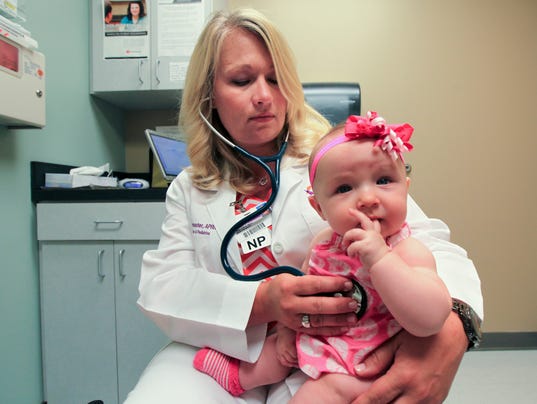Nurse practitioners and physician assistants are a fast-growing part of the medical marketplace, getting paid more often for procedures people generally associate with doctors, such as electrocardiograms, pelvic exams and even helping with heart bypasses, a USA TODAY analysis of federal data finds.
 |
| Physician DODO Bird |
Medicare billing records show 15% more nurse practitioners and 11% more physician assistants received payments in 2013 than in 2012 for all types of care. During that same year, the number of general practice physicians paid by the insurance program for the elderly and disabled dropped by 5%.
Experts say this reflects the rising influence of non-physician caregivers in a changing health care system beset by doctor shortages and now taxed even more by a growing number of patients gaining insurance through Obamacare. It also shines light on the high-level care that NPs and PAs have been providing for many years. Until now, that's been largely under the radar, but is revealed with the release of government payments to health care providers, which clearly show these caregivers are a growing force in medicine.
"We weren't seen before, but we were doing these things," says Elizabeth Visone, a nurse practitioner in Connecticut. "(Critics) would say: You can't do these procedures and you shouldn't do these procedures. But we were doing them."
Replacing chest tubes, interpreting EKGs and caring for trauma patients with severe problems like aortic aneurysms are typical duties for Kristen Guida, a night-shift NP at a trauma center in Hartford, Conn. Lumbar punctures of the lower back and cystoscopies to check the urinary tract are commonly handled by physician assistants, who also assist doctors in complicated operations because "the surgeon only has two hands," says Todd Pickard, director of physician assistant practice at The University of Texas MD Anderson Cancer Center.
"A lot of people misunderstand the roles of PAs and NPs," he says. "With PAs, it sounds like we fetch a prescription pad and get coffee for physicians, and that's not what we do at all."Read the rest of the story HERE.
If you like what you see, please "Like" us on Facebook either here or here. Please follow us on Twitter here.





No comments:
Post a Comment